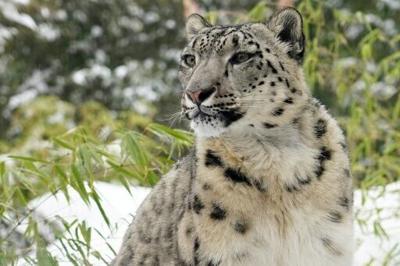
NEW DELHI, Jan 31, 2024 (BSS/AFP) - Snow leopards have been dubbed the
"ghosts of the mountains" for their elusive behaviour, but Indian researchers
have successfully photographed more than 200 in a landmark study estimating
at least 718 across the country.
The mammoth five-year survey, the first nationwide review of snow leopards in
India, monitored 120,000 square kilometres (46,000 square miles) of their
remote mountain habitat, according to the environment ministry.
It involved setting out camera traps in nearly 2,000 locations recording more
than 180,000 nights -- the equivalent to nearly 500 years -- to record 241
individual leopards on camera.
The leopards -- with thick grey fur dotted with dark spots, and large paws
that act as natural snow shoes -- are "masters of stealth and camouflage",
according to the World Wide Fund For Nature (WWF) India, who assisted the
assessment.
The environment ministry said the survey has "significantly increased
understanding" of the rare creatures, Indian media reported Wednesday.
Snow leopards, scientific name panthera uncia, are listed as "vulnerable"
species by the International Union for Conservation of Nature (IUCN).
Before the survey, the WWF had suggested that there were between 400-700 snow
leopards in India. The report now puts the total number in the upper range of
earlier estimates.
Two-thirds of the cats are found in India's far northern Ladakh, with the
rest in Himalayan states including Uttarakhand and Himachal Pradesh, the
survey found.
"Consistent monitoring is essential to ensuring snow leopards' long-term
survival," the environment ministry added.
The Snow Leopard Trust, a US-based conservation group, says the exact total
number is not known but that "there may be as few as 3,920 and probably no
more than 6,390" across 12 countries in Asia.
The IUCN has dubbed the solitary cat the "ghost of the mountains" for its
ability to hide, noting numbers are "decreasing mostly due to habitat loss,
poaching, and the impacts of climate change".